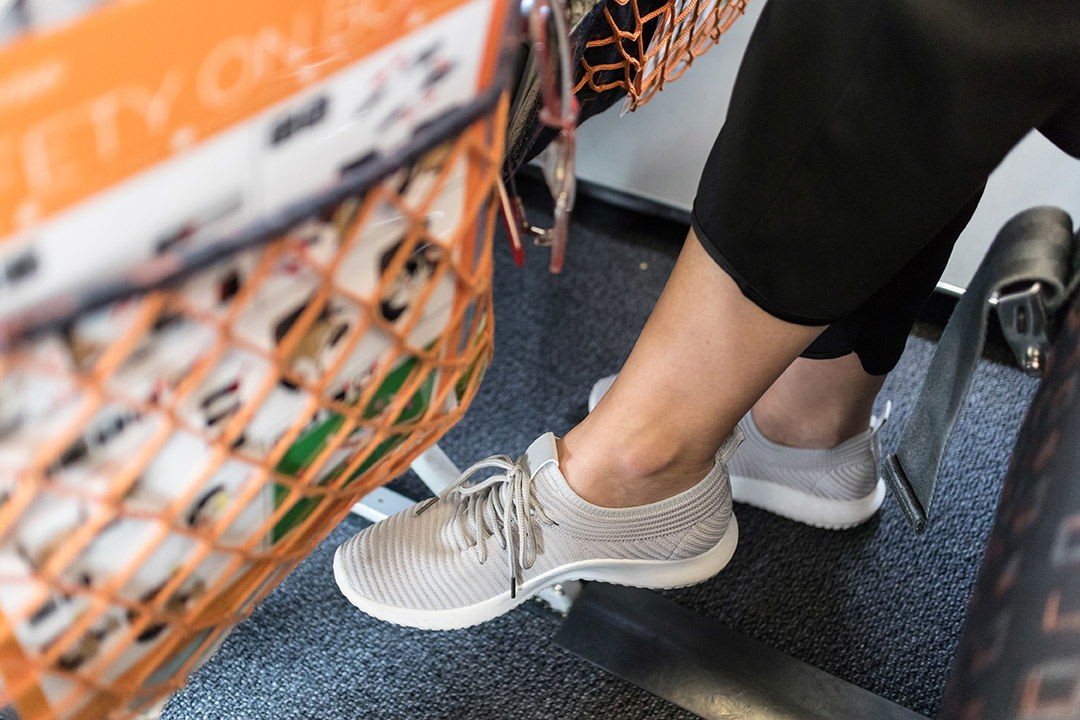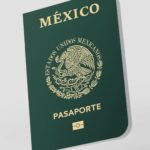Are you wondering, “How Soon Can I Travel After Surgery?” At TRAVELS.EDU.VN, we understand the importance of knowing the appropriate waiting period before flying or traveling after a surgical procedure to ensure your safety and recovery. Traveling too soon can lead to complications, but with proper planning and precautions, you can minimize the risks and enjoy your trip. We offer expert guidance and support to help you make informed decisions about post-surgery travel, ensuring a smooth and safe experience.
This guide will delve into various aspects of post-operative travel, including recommended waiting times for different types of surgeries, potential risks, and essential precautions. Plus, we’ll explore how TRAVELS.EDU.VN can assist you in planning your post-surgery trips, ensuring your comfort and safety every step of the way.
1. Understanding the Risks of Traveling After Surgery
Traveling after surgery can pose several risks, primarily due to the changes in cabin pressure during flights and the potential for reduced mobility. These factors can increase the likelihood of complications.
1.1. Increased Risk of Blood Clots
One of the most significant risks is the increased chance of developing blood clots. According to the National Blood Clot Alliance, surgery is a major risk factor for venous thromboembolism (VTE), which includes deep vein thrombosis (DVT) and pulmonary embolism (PE). The risk can persist for several weeks after the procedure.
When flying, the combination of lower cabin pressure and prolonged sitting can thicken the blood and slow down circulation, making blood clots more likely. These clots can form in the deep veins of the legs (DVT) and, in severe cases, travel to the lungs, causing a pulmonary embolism.
1.2. Wound Complications and Infections
Surgical wounds need time to heal properly. Traveling too soon can disrupt the healing process and increase the risk of infection. Airports and airplanes can be breeding grounds for germs, and the stress of travel can weaken your immune system, making you more susceptible to infections.
1.3. Air Pressure Changes
Changes in air pressure during flights can also cause issues, especially after certain types of surgery. For example, after eye surgery, rapid pressure changes can lead to eye barotrauma or increased eye dryness, potentially affecting vision.
1.4. Reduced Oxygen Levels
The reduced oxygen levels in airplane cabins can be problematic for individuals who have undergone lung or heart surgery. These patients may experience respiratory distress or hypoxia (low oxygen levels), which can be dangerous.
1.5. General Fatigue and Stress
Surgery takes a toll on your body, and the recovery period is crucial for regaining strength. Traveling too soon can lead to fatigue and stress, which can impede healing and increase the risk of complications.
2. Recommended Waiting Times for Different Surgeries
The amount of time you should wait before traveling after surgery varies depending on the type of procedure. Here are some general guidelines from medical experts:
| Type of Surgery | Recommended Waiting Time |
|---|---|
| Knee Replacement | 4-6 weeks |
| Hip Replacement | 3 months |
| Abdominal Surgery | 4-10 days |
| Cataract Surgery | 24 hours |
| Arthroscopic Surgery | 2 weeks |
| Colonoscopy | 24 hours |
| Chest Surgery | 10-14 days |
| Laparoscopic Surgery | 4-5 days |
| Stent Placement | 10 days |
| Sinus Surgery | 2 weeks |
| Brain Surgery | 7-10 days |
| Heart Surgery | 7-10 days |
| Orthopedic Surgery (with cast) | 1-2 days (check airline policies) |
| Facial Fracture | 2 weeks |
| Breast Cancer Surgery | 6 weeks |
| Tracheotomy | Adults: 6 weeks; Children: 9 months |
 waiting time after surgery
waiting time after surgery
Important Note: These are general guidelines. Always consult your surgeon or healthcare provider for personalized advice based on your specific condition and recovery progress.
2.1. Cardiovascular Surgeries
For heart procedures, such as bypass surgery or valve replacement, it’s crucial to allow adequate healing time. According to the American Heart Association, patients should typically wait at least one week to 10 days before flying after heart surgery, but this can vary depending on the complexity of the procedure and the patient’s overall health.
2.2. Orthopedic Procedures
Joint replacement surgeries, like hip or knee replacements, require a longer waiting period due to the risk of blood clots and the need for proper wound healing. The American Academy of Orthopaedic Surgeons suggests waiting at least three to six weeks before undertaking air travel.
2.3. Abdominal Surgeries
After abdominal surgeries, such as appendectomies or gallbladder removals, the waiting period can range from a few days to over a week. The Federal Aviation Administration (FAA) recommends waiting 4 to 5 days after simple abdominal surgery and at least 10 days after more complex procedures.
2.4. Eye Surgeries
For eye surgeries like cataract removal, the waiting time is relatively short. Most surgeons allow patients to fly within 24 hours after the procedure. However, for more complex surgeries like retinal detachment repair, a waiting period of at least a week is advisable.
2.5. Breast Cancer Surgery
After breast cancer surgery, it’s generally recommended to wait a minimum of six weeks before flying. This allows sufficient time for wound healing and reduces the risk of complications such as lymphedema or infection.
2.6. Laparoscopic Surgeries
Laparoscopic or keyhole surgeries generally require a shorter recovery period compared to open surgeries. However, it is still important to wait 4 to 5 days to ensure there are no immediate complications like pneumothorax or respiratory issues.
3. Essential Precautions to Take Before and During Travel
If you need to travel after surgery, taking certain precautions can help minimize the risks and ensure a safer journey.
3.1. Consult Your Doctor
The most important step is to consult your surgeon or healthcare provider before making any travel plans. They can assess your condition, evaluate the risks, and provide personalized recommendations.
3.2. Check with Your Airline
Airlines may have specific policies regarding travel after surgery. Some airlines may require a medical certificate or may refuse boarding if they believe you are not fit to fly. Check with your airline about their requirements and any necessary documentation.
3.3. Plan for Extra Time
Allow extra time for travel to avoid rushing and stress. Arrive at the airport early, and plan for potential delays or layovers.
3.4. Pack Medications and Medical Supplies
Ensure you have an ample supply of all necessary medications, along with copies of your prescriptions. Pack any medical supplies you may need, such as wound dressings or compression stockings.
3.5. Wear Compression Stockings
Compression stockings can help improve blood circulation and reduce the risk of blood clots. Wear them during your flight, especially on long journeys.
3.6. Stay Hydrated
Dehydration can increase the risk of blood clots. Drink plenty of water before, during, and after your flight.
3.7. Avoid Alcohol and Caffeine
Alcohol and caffeine can dehydrate you and interfere with your medications. Avoid these beverages during your travel.
3.8. Move Around Regularly
Get up and walk around the airplane cabin every hour to promote circulation. If you can’t move around, perform seated exercises such as ankle pumps and leg extensions.
3.9. Choose Comfortable Clothing
Wear loose, comfortable clothing that doesn’t restrict circulation. Avoid tight-fitting garments that can impede blood flow.
3.10. Consider Travel Insurance
Purchase travel insurance that covers medical emergencies and repatriation. Make sure the policy covers any pre-existing conditions and potential post-surgery complications.
3.11. Medical Escort or Air Ambulance
For high-risk patients or those who have undergone major surgery, consider traveling with a medical escort or using an air ambulance. A medical escort can provide assistance and monitor your condition during the flight, while an air ambulance offers advanced medical care and equipment.
4. How TRAVELS.EDU.VN Can Assist You
TRAVELS.EDU.VN is committed to providing safe and comfortable travel solutions for individuals recovering from surgery. Here’s how we can assist you:
4.1. Personalized Travel Planning
We offer personalized travel planning services tailored to your specific medical needs and recovery progress. Our experienced travel consultants work closely with you and your healthcare provider to create a travel itinerary that minimizes risks and maximizes comfort.
4.2. Medical Travel Insurance
We can help you find comprehensive travel insurance policies that cover medical emergencies, repatriation, and pre-existing conditions. Our insurance partners offer plans designed specifically for travelers with medical needs.
4.3. Medical Escort Services
TRAVELS.EDU.VN can arrange for a qualified medical escort to accompany you on your journey. Our medical escorts are trained healthcare professionals who can monitor your condition, administer medications, and provide assistance as needed.
4.4. Air Ambulance Arrangements
In cases where commercial travel is not advisable, we can arrange for air ambulance services. Our air ambulance partners provide state-of-the-art medical equipment and experienced medical teams to ensure safe and comfortable transport.
4.5. Ground Transportation Assistance
We can coordinate ground transportation to and from airports and accommodations, ensuring a seamless and stress-free travel experience. Our drivers are trained to assist passengers with mobility issues and medical needs.
4.6. Accommodation Assistance
We can help you find accommodations that meet your medical requirements, such as hotels with accessible rooms, on-site medical facilities, or proximity to hospitals.
5. Understanding Deep Vein Thrombosis (DVT) and Pulmonary Embolism (PE)
Deep vein thrombosis (DVT) and pulmonary embolism (PE) are serious conditions that can occur after surgery, especially when combined with air travel. Understanding these conditions is crucial for taking preventive measures.
5.1. What is Deep Vein Thrombosis (DVT)?
DVT is a condition in which a blood clot forms in a deep vein, usually in the leg. Symptoms of DVT can include:
- Swelling in the affected leg
- Pain or tenderness in the leg
- Redness or discoloration of the skin
- Warmth in the affected area
5.2. What is Pulmonary Embolism (PE)?
PE occurs when a blood clot breaks off from a DVT and travels to the lungs, blocking one or more pulmonary arteries. Symptoms of PE can include:
- Sudden shortness of breath
- Chest pain
- Coughing up blood
- Rapid heartbeat
- Fainting
5.3. Prevention of DVT and PE
Preventing DVT and PE is essential when traveling after surgery. Here are some strategies:
- Compression Stockings: Wear compression stockings to improve blood circulation.
- Hydration: Drink plenty of water to prevent dehydration.
- Movement: Move around regularly to promote circulation.
- Medications: Take prescribed anticoagulant medications as directed by your doctor.
6. Post-Surgery Travel Checklist
Before embarking on your post-surgery journey, use this checklist to ensure you’re well-prepared:
- [ ] Consult your surgeon or healthcare provider.
- [ ] Check with your airline about their policies.
- [ ] Obtain necessary medical certificates or documentation.
- [ ] Plan for extra travel time.
- [ ] Pack medications and medical supplies.
- [ ] Wear compression stockings.
- [ ] Stay hydrated and avoid alcohol and caffeine.
- [ ] Move around regularly during travel.
- [ ] Choose comfortable clothing.
- [ ] Purchase travel insurance that covers medical emergencies.
- [ ] Consider medical escort services or air ambulance arrangements.
- [ ] Coordinate ground transportation and accommodations.
7. TRAVELS.EDU.VN Success Stories
At TRAVELS.EDU.VN, we have a proven track record of assisting patients with post-surgery travel. Here are a couple of examples:
7.1. Case Study 1: Knee Replacement Patient
John, a 65-year-old retiree, underwent a total knee replacement. He was eager to return home to California from his surgery in New York. TRAVELS.EDU.VN coordinated his travel, arranging for a medical escort to accompany him on the flight, ensuring he had assistance with mobility and medication. We also booked a hotel with accessible facilities for his overnight layover.
7.2. Case Study 2: Heart Surgery Patient
Maria, a 52-year-old businesswoman, had emergency heart surgery while on a business trip in Chicago. She needed to return to her family in Texas but was concerned about flying commercially. TRAVELS.EDU.VN arranged for an air ambulance to transport her safely, with a medical team onboard to monitor her condition throughout the flight.
8. Latest Updates and Recommendations
Staying informed about the latest guidelines and recommendations for post-surgery travel is crucial. Here are some current updates:
8.1. CDC Guidelines
The Centers for Disease Control and Prevention (CDC) provides travel health notices and recommendations for various destinations. Check the CDC website for any specific health advisories related to your destination.
8.2. WHO Recommendations
The World Health Organization (WHO) also offers guidance on international travel and health. Review their recommendations for post-surgery travel and any potential health risks.
8.3. Airline Policies
Airlines continue to update their policies regarding travel after surgery. Stay informed about any changes or requirements by checking the airline’s website or contacting their customer service department.
9. Frequently Asked Questions (FAQs)
1. How soon can I fly after surgery?
The waiting time varies depending on the type of surgery. General guidelines range from 24 hours after cataract surgery to 3 months after hip replacement. Always consult your doctor for personalized advice.
2. What are the risks of flying after surgery?
The risks include blood clots, wound complications, air pressure changes, reduced oxygen levels, and general fatigue.
3. Can I take my medications on the plane?
Yes, but keep them in their original containers and bring a copy of your prescription.
4. What should I wear on the plane after surgery?
Wear loose, comfortable clothing and compression stockings.
5. Do I need a medical certificate to fly after surgery?
Some airlines may require a medical certificate. Check with your airline before traveling.
6. Can I bring medical equipment on the plane?
Yes, but inform the airline in advance and check their policies regarding medical equipment.
7. What is a medical escort?
A medical escort is a healthcare professional who accompanies you on your flight, providing assistance and monitoring your condition.
8. When should I consider an air ambulance?
Consider an air ambulance if you have undergone major surgery or have a high risk of complications.
9. Does travel insurance cover post-surgery travel?
Purchase travel insurance that specifically covers medical emergencies and pre-existing conditions.
10. How can TRAVELS.EDU.VN help me?
TRAVELS.EDU.VN offers personalized travel planning, medical escort services, air ambulance arrangements, and ground transportation assistance.
10. Take the Next Step with TRAVELS.EDU.VN
Don’t let concerns about post-surgery travel prevent you from enjoying your next trip. With careful planning and the right support, you can travel safely and comfortably.
Contact TRAVELS.EDU.VN today to learn more about our services and how we can assist you with your post-surgery travel needs.
Address: 123 Main St, Napa, CA 94559, United States
WhatsApp: +1 (707) 257-5400
Website: TRAVELS.EDU.VN
Let TRAVELS.EDU.VN be your trusted partner in ensuring a smooth and worry-free travel experience. We’re here to help you every step of the way!
 patient in wheelchair
patient in wheelchair
Now is the perfect time to start planning your post-surgery travel with confidence. Contact travels.edu.vn and let us take care of all the details, so you can focus on your recovery and enjoy a stress-free journey. We understand the unique challenges you face and are dedicated to providing personalized solutions that meet your specific needs. Get in touch with us today and discover how we can make your travel dreams a reality, safely and comfortably.
Disclaimer: This guide provides general information and should not be considered medical advice. Always consult your surgeon or healthcare provider for personalized recommendations based on your specific condition and recovery progress.

